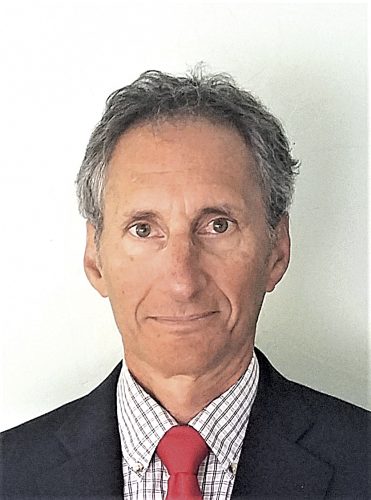Local governments must speak up now about federal climate legislation

Joseph Bonasia
The Center for Climate Integrity projects that by 2040, due to global warming, Florida will spend $76 billion just on seawalls. Lee County’s share of that will be $3.5 billion. Cape Coral’s, $431 million.
A 2020 fiscal analysis for Florida State Senate Bill 7016 cited estimates that within 80 years Florida could lose more than $300 billion in property values due to rising sea levels.
No state is more susceptible to storm damages than is Florida. Irma alone cost $50 billion.
Because of changes in FEMA’s risk ratings, some Florida homeowners may soon see their flood insurance rates increase 5,000%. “That’s not a typo,” USA Today reports. “Five thousand percent.”
I am a Cape Coral resident. Like you, I’ve got a lot of skin in this climate crisis game.
I also serve as Citizens’ Climate Lobby liaison to Senator Rick Scott’s office. It’s a volunteer position, and CCL is a national non-profit organization that has for 10 years been advocating a market-based response to global warming.
Congress will likely pass climate legislation this year, and we Floridians deserve significant say in that legislative decision-making. Accordingly, the most important action our local governments can take on our behalf is to tell our federal representatives what kind of climate legislation we want.
The question is: What legislative action will most effectively reduce greenhouse gas emissions and spur technological innovation? Impact upon jobs, businesses, and the economy, of course, must be considered carefully as well as any financial burdens placed upon families.
The United States Commodities Trade Commission says, “climate change poses serious emerging threats to the U.S. financial system” and that a price on carbon “is the single most important step to manage climate risk.”
Business Roundtable CEOs, representing 15 million American employees and $7.5 trillion in revenue, assert a carbon tax “is the most important consideration for encouraging innovation, driving efficiency, and ensuring sustained environmental and economic effectiveness.”
The National Academy of Sciences, our nation’s leading scientific body, which provides “independent, objective advice to inform policy, spark progress and innovation, and confront challenging issues for the benefit of society,” maintains carbon pricing is essential to meeting climate goals. We will not resolve the crisis without it.
Former chairs of the Federal Reserve and thousands of American economists on both sides of the political aisle declare: “A carbon tax offers the most cost-effective lever to reduce carbon emissions at the scale and speed that is necessary… A consistently rising carbon price will encourage technological innovation… promote economic growth” and “American families, including the most vulnerable, will benefit financially by receiving more in ‘carbon dividends’ than they pay in increased energy prices.”
Studies indicate a market-based, carbon fee and dividend program, such as the one just described, will reduce greenhouse gas emissions 40% in 12 years and 90% in 30 years, create millions of jobs, stimulate innovation, and put money in most people’s pockets.
In past legislative sessions, former Congressman Francis Rooney co-sponsored such a program, the Energy Innovation and Carbon Dividend Act (EICDA). It has garnered more support in Congress than any other climate legislation.
Speaking as liaison to the senator’s office, I can tell you that our members of Congress want to hear from their constituencies about climate action. Recently, the City of Coral Gables endorsed the EICDA, joining the cities of Miami, Sarasota, and Coconut Creek, and Broward and Palm Beach Counties, among other jurisdictions in Florida. That’s a great way of getting heard from as far away as Washington.
Endorsements from SWFL city councils such as Cape Coral and Fort Myers, and from SWFL county commissions, adding their official voices to those just listed, would carry significant weight.
Congress will likely pass climate legislation this year. Circumstances are such that we must get this right the first time around, and the time for SWFL governments to speak out and impact the nature of that legislation is now.
— Joseph Bonasia, a Cape Coral resident, is the volunteer legislative liaison to Sen. Rick Scott’s office for the Citizens’ Climate Lobby.

